ARTICLE AD BOX

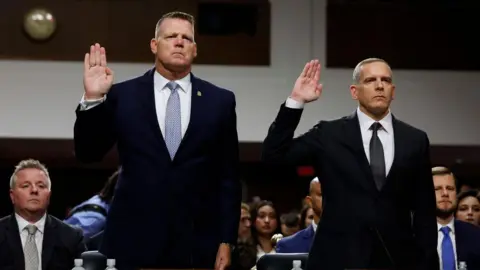 Getty Images
Getty Images
The new acting head of the US Secret Service said he "lost sleep" over security failures that led to the attempted assassination of Donald Trump during a testy congressional hearing on Tuesday.
At an hours-long US Senate hearing, Ronald Rowe and FBI Deputy Director Paul Abbate outlined the ongoing investigation into what led to the shooting, elements of what they have learned about the would-be assassin, and the security failures that allowed the gunman to fire at the former president.
Mr Rowe's testimony before a joint panel of the Senate Homeland Security and Judiciary committees comes a week after his predecessor, Kim Cheatle, was forced to resign.
Ms Cheatle faced intense criticism for the Secret Service's handling of the 13 July rally in Butler that left a man dead and Trump and two others injured, and her inability to answer questions before the House Oversight Committee last week was ridiculed by Democrats and Republicans.
The two men's answers at Tuesday's hearings were more substantive than what was heard previously, and Mr Rowe attempted to reassure Senators with new plans to address security lapses.
Here are five new things we learned.
New Secret Service boss 'lost sleep' over failures
During the occasionally tense hearing, Mr Rowe on several occasions made reference to the mental toll that the Butler shooting security failures have taken, on him and his agents.
"My people are hurting right now," he said. "Emotions are raw."
One of the failures he outlined was that the Secret Service was unable to deploy a "counter unmanned aerial system" ahead of the rally because of cellular connectivity issues.
Had they done so, they would have likely detected a drone flown by the gunman, Thomas Matthew Crooks, ahead of the rally.
Investigators now believe Crooks conducted "early surveillance" of the site.
"That is something that has cost me a lot of sleep, because of the eventual outcome," Mr Rowe said.
"I have no explanation...I feel as though we could have found him, could have maybe stopped him on that particular day," he added. "He could have decided this isn't the day to do it, because law enforcement just found [him] flying his drone."
Additionally, Mr Rowe said that agents from the service's Pittsburgh field office - who were largely responsible for securing the rally site in Butler - have been "wearing this harder than anybody".
"They feel completely demoralised," Mr Rowe said. "What I'm trying to do is also let them know that I'm listening. They need to be focused on the mission at hand."

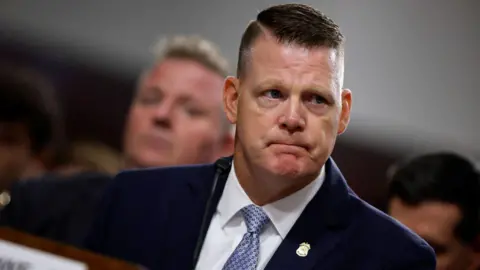 Getty Images
Getty Images
Ronald Rowe repeatedly characterised the Butler rally as a Secret Service "failure"
Secret Service to change operations after Butler
While he was unable to reveal many details because of the sensitive nature of the Secret Service's protective work, Mr Rowe said that the agency he now oversee has already addressing "identified gaps in our security".
Mr Rowe added that he "will not wait" for various investigations to be finished to ensure "we do not repeat those failures".
In addition to its plans for drone threats, Mr Rowe outlined intentions to reform how the Secret Service communicates internally and with local police before and during events.
Officials have said that much of the communications chatter at the Butler rally took place via text messages, potentially contributing to confusion over reports of a suspicious person.
Mr Rowe said that suspicions about Crooks were "stuck or siloed" in a communications channel used mostly by state and local officers.
"It was great [that] there was a text chain," Mr Rowe said. "But that communication needs to go over the net. It needs to go over a radio channel so that everyone has situational awareness of it....I want people using the radio."
Mr Rowe added that the service will move to ban rangefinders - devices which measure distances between the user and a fixed distance - at future events.
Mystery remains over how rifle got onto the roof
One of the lingering mysteries about the Butler shooting is how Crooks was able to get a rifle onto the rooftop of the now-infamous American Glass Research building in Butler, which is where he had a clear shot of Trump.
Neither Mr Rowe or Mr Abbate was able to answer that question.
"We don't have definitive evidence as to how he got the rifle up there," Mr Abbate said, although officials believe it was in a backpack he had with him at the rally.
According to Mr Abbate, the rifle "would have been visible" if placed in the bag while assembled.
"We don't have anyone who observed him with the backpack with a rifle barrel or other parts sticking out," he said. "The rifle would not have fit fully into this backpack, concealed and whole."
Newly uncovered video shows Crooks retrieving the bag from his car shortly before climbing up to the roof and firing eight shots at Trump's podium.
"It's possible he broke the rifle down and took it out of the bag in those moments before and re-assembled it there," Mr Abbate said. "That's one of the theories that we're looking at."

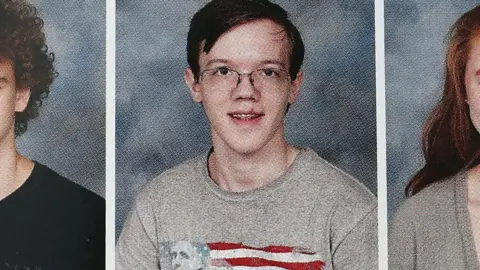 Reuters
Reuters
Investigators have yet to determine what motivated the culprit, Matthew Thomas Crooks
Investigators looking at troubling social media
Despite conducting hundreds of interviews and poring over mountains of digital evidence, the two law enforcement leaders said that investigators have not yet been able to conclusively provide a motive that can explain why Crooks drove to the rally and opened fire.
Mr Abbate revealed that investigators have unearthed a social media account they believe may be tied to Crooks - a discovery that could potentially provide a glimpse at his worldview.
The account, which includes more than 700 posts, dates back to 2019 and 2020, Mr Abbate said.
Mr Abbate added that the posts, "if ultimately attributable to the shooter, appear to reflect antisemitic and anti-immigration themes, to espouse political violence, and are described as extreme in nature."
"While the investigative team is still working to verify this account to determine if it did in fact belong to the shooter, we believe it is important to share and note today," he said. "Our work is very much ongoing and urgent."
Firings possible at Secret Service
Even as the investigation into what took place continues, some lawmakers at the hearing made it clear that they expect additional disciplinary actions to take place.
South Carolina Republican Lindsey Graham, for example, said that the "best way to make sure it doesn't have to happen again is to fire people, so that those who come behind them will realise there's a consequence for not getting it right".
While Mr Rowe said he would "not rush to judgement", he did promise that "people will be held accountable".
"If there were policy violations, those individuals will be held accountable," he said. "They will be held to our table of penalties, which will include up to termination."

 9 months ago
32
9 months ago
32
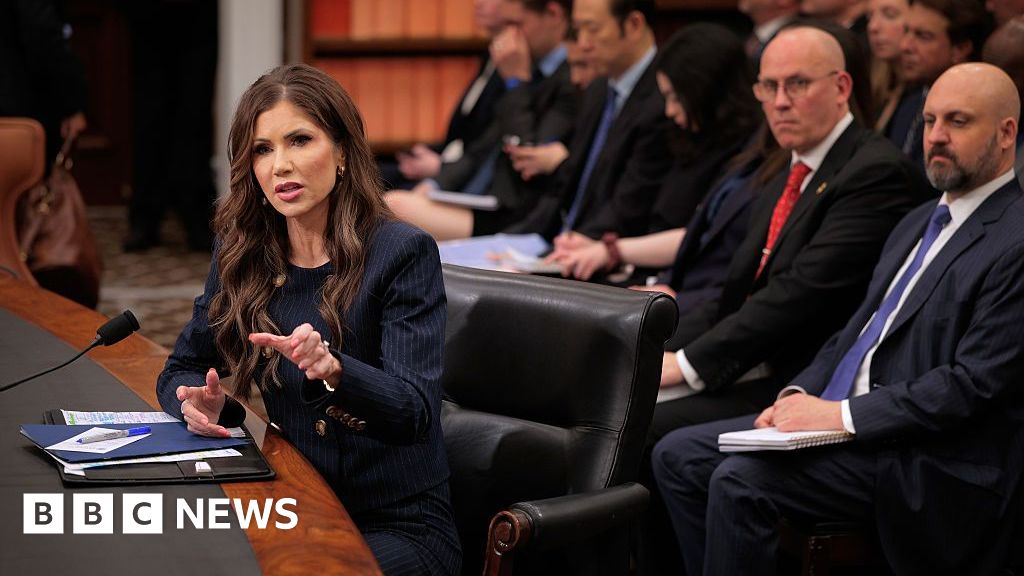
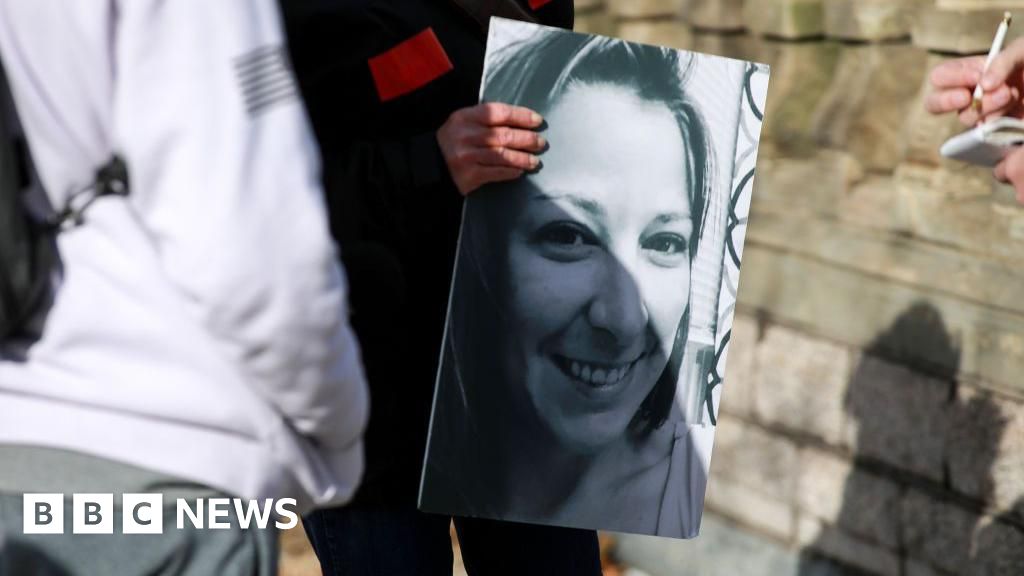
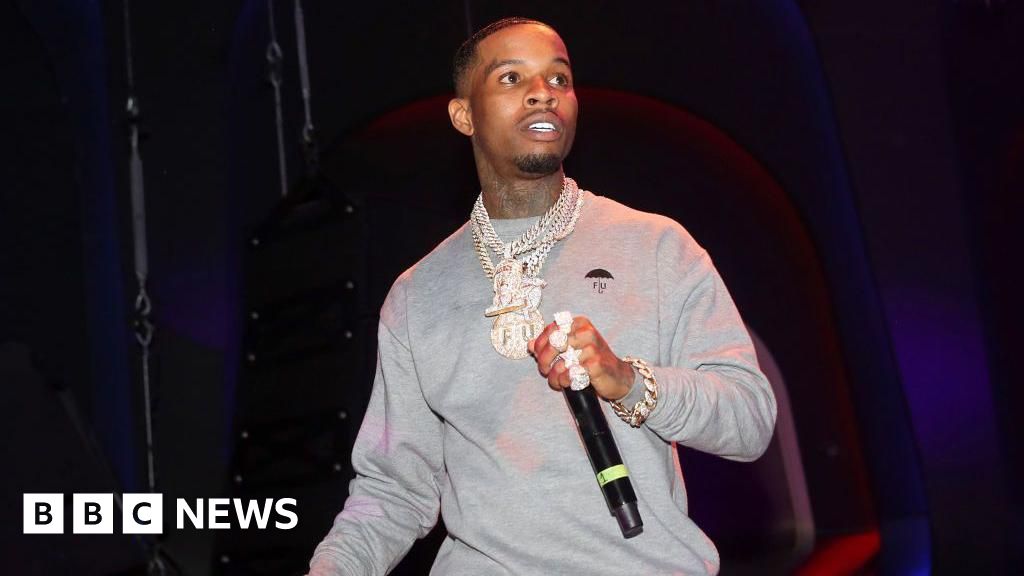





 English (US) ·
English (US) ·